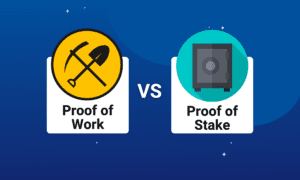One of the most important aspects of financial planning is asset protection. It safeguards valuable assets from potential threats. This is where custodians come into the picture. They are trusted professionals who hold, manage, and secure assets on behalf of individuals and organizations. While custodians play a vital role in asset protection, their duties and functions can greatly vary.
Understanding Custodianship
Custodians are professional entities that securely hold assets. This involves everything from maintaining accurate records and safeguarding these assets to monitoring all transactions and ensuring regulatory compliance. This is a critical role that helps prevent unauthorized access, loss, or damage to assets.
Responsibilities of a Custodian
Custodians are required to follow stringent procedures to secure assets left in their care. They must ensure that records are maintained, transactions are tracked, and legal and other regulatory compliance is met. This reassures asset owners that their assets are in safe, secure hands, especially when they are dealing with a retirement custodian for investments.
Asset Management and Record Keeping
Custodians are responsible for managing assets, which requires meticulous record-keeping in the form of transaction histories and account details. A suitable paper trail helps with auditing and tracking, thanks to which the lectures can be tested and held accountable both on stage and off.
Custodians also perform administrative work, such as transaction processing, cash flow management, and trade execution. These duties demand precision and deep market knowledge.
Ensuring Security
When it comes to asset protection, security is the number one priority. Thus, custodians implement state-of-the-art techniques to protect assets against possible dangers. These techniques may include securing all systems for data protection and using encryption and other methods to keep data protected from being accessed.
Conducting periodic assessments and quarterly audits to ascertain technical gaps. This allows custodians to rectify issues before they turn into major problems. They take this proactive approach to ensure the assets that they are managing remain safe at all times.
Facilitating Communication
Custodians serve as the liaison between asset holders and financial institutions. They help by facilitating communication among all involved parties, ensuring everyone knows what transactions are taking place and what changes there might be. This position plays a key role in keeping things transparent and building trust.
A custodian plays a critical role here by clearly communicating to ensure that asset owners make informed decisions. These insights and updates are critical for strategic planning and risk management.
Compliance and Regulation
Compliance with law and regulations is the foundation of custodianship, and it is never more important than in a time of crisis. Compliance demands that custodians should be abreast of the changing regulations and compliant at all times. It requires filing reports, hiring auditors, and being transparent to regulators.
“Know Your Assets” compliance builds trust with asset owners and financial institutions. It reduces the risk of legal matters, allows operations to run smoothly, and provides a haven for assets.
The Importance of Choosing the Right Custodian
Need Help Protecting Your Assets? Choosing the right custodian is the answer. When making this decision, asset owners have to consider reputation, experience, and how asset security is being handled. Having a custodian with a good reputation and history gives confidence that the assets are in good hands.
It’s also advisable to evaluate their technology and infrastructure. Secure systems and advanced platforms show an emphasis on the protection of assets. Asset owners need to be confident about their custodian’s capability to deal with any of those challenges.
Building Trust and Confidence
The custodian must earn the client’s trust. In order for asset owners to trust custodians, custodians need to prove they are faithful, and that is all about the reliability of the custodians. That translates to communication, delivery, and defending assets.
Custodians establish permanent relationships with their clients through trust-building. Clients depend on their custodians to play the role of guardians, ensuring safety and investment growth.
Adapting to Changes
The financial landscape is always evolving. Asset protection is a constantly changing field, and custodians must ensure they are aware of developments and adapt as needed. That means staying ahead of the curve when it comes to technology, regulations, and market changes.
Up-to-date custodians can deliver meaningful solutions and strategies for asset owners. Such flexibility guarantees the security of assets in an evolving environment.
Conclusion
Custodians play a vital role in the asset protection cycle. They are responsible for asset management, security, and statutory compliance. Selecting a reputable custodian is essential for securing these important assets. Custodians allow asset owners to focus on their financial objectives by carrying out their responsibilities dutifully and with integrity.



































